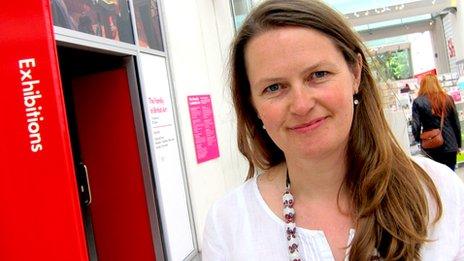Sheffield museums' explain problem of rising energy bills
- Published
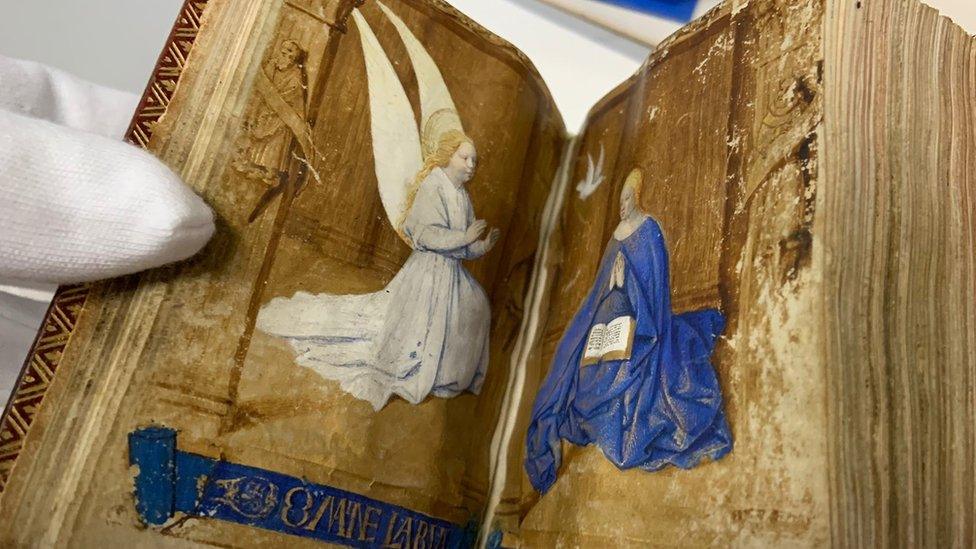
Jewels in Sheffield's collection which need protecting include this 16th Century Book of Hours
The organisation which runs Sheffield's museums predicts its annual energy bill will double to £505,000 from April.
Kim Streets, chief executive of Sheffield Museums, said attractions such as the Millennium Gallery needed to be kept at steady temperatures to protect exhibits,
She said a government discount for "high intensity" users was "helpful" but added, "it's still a big number".
Items in the collection include the 460-year-old illustrated Book of Hours.
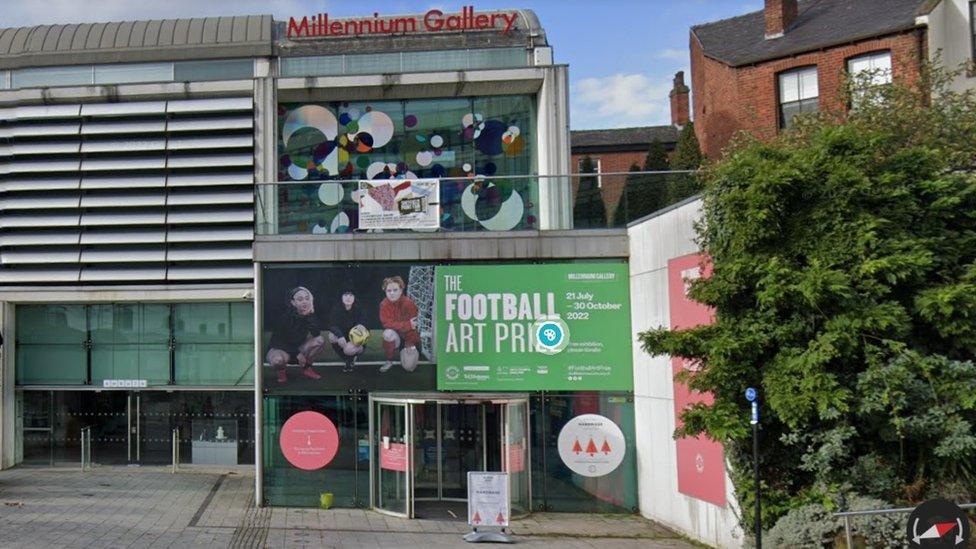
Sheffield Museums, which runs attractions such as Millennium Gallery, expects its energy bill to hit £505,000
Sheffield Museums operates six attractions: Millennium Gallery, Abbeydale Industrial Hamlet, Graves Gallery, Kelham Island Museum, Shepherd Wheel Workshop and Weston Park Museum.
Speaking to BBC Radio Sheffield, Ms Streets said the organisation's energy bills had "gone through the roof".
She said: "At one point, we thought it was going to quadruple. It's come down slightly but it's still double what it was this financial year."
'Very fragile'
But Ms Streets said it was essential artefacts - both owned and borrowed - were kept at the right temperature.
She said: "We need to keep our environmental conditions, so that relative humidity of spaces and the temperatures, are in a sort of steady state, and that's so we can borrow items that are very fragile and often of very high value.
"There are particular insurance conditions that we need to meet in order to bring, for example, things like the Leonardos [drawings], to Sheffield."
Twelve drawings by Leonardo da Vinci, from the Royal Collection, went on display at Millennium Gallery in 2019 as part of major nationwide exhibition marking the 500th anniversary of the artist's death.
Kirstie Hamilton, Sheffield Museums' programme director, said about 95% of the city's artefacts, ranging from insects to statues, were in storage.
She said "microclimates" needed to be created to ensure artefacts survive for future generations to enjoy.
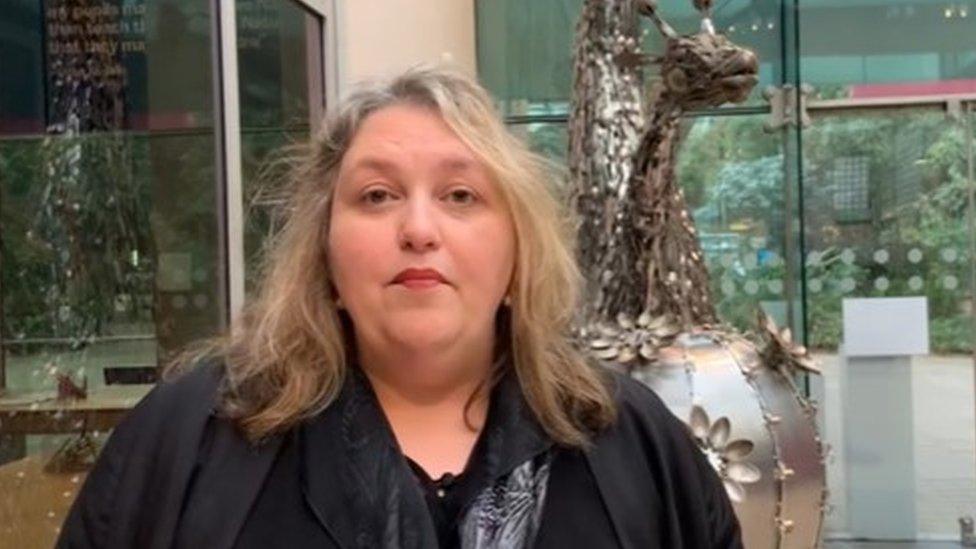
Kirstie Hamilton, from Sheffield Museums, says 95% of the city's collection is kept in storage
Ms Hamilton said: "Some things are not necessarily in a stable enough condition to be displayed. Also, a lot of things cannot be displayed for long periods of time."
One of the jewels in Sheffield's collection is the beautifully-illustrated Book of Hours, penned in the 1560s.
Ms Hamilton said: "It's a religious book, and this one was owned by a rich lady; an aristocrat in France. In this case, she used it as an autograph book.
"What is really fab about this book is that it has got the signature of Mary of Guise who was Mary Queen of Scots' mum."

Follow BBC Yorkshire on Facebook, external, Twitter, external and Instagram, external. Send your story ideas to yorkslincs.news@bbc.co.uk, external.
Related topics
- Published28 August 2012
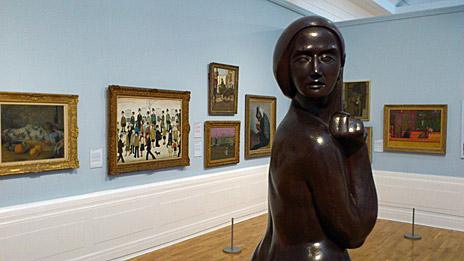
- Published19 April 2012
